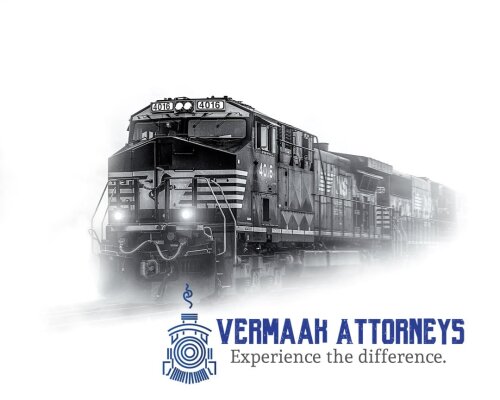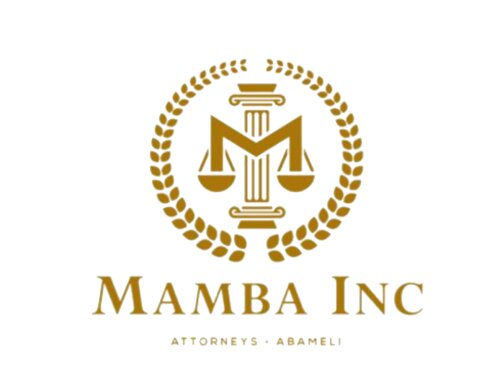Best Nonprofit & Charitable Organizations Lawyers in Centurion
Share your needs with us, get contacted by law firms.
Free. Takes 2 min.
List of the best lawyers in Centurion, South Africa
About Nonprofit & Charitable Organizations Law in Centurion, South Africa
Nonprofit and charitable organizations in Centurion, South Africa, play a vital role in supporting communities, advocating for social causes, and addressing a wide range of societal needs. These organizations operate on a not-for-profit basis, meaning any income they generate is used to further their objectives rather than being distributed as profits or dividends. In Centurion, as with the rest of South Africa, nonprofits include a broad spectrum of entities such as Nonprofit Companies (NPCs), Nonprofit Organisations (NPOs), and Public Benefit Organisations (PBOs). Complying with various legal and regulatory requirements is crucial for operation and sustainability. Legal guidance helps ensure that an organization remains compliant, maintains its status, and operates with transparency and integrity.
Why You May Need a Lawyer
Legal advice is essential at different stages in the lifecycle of a nonprofit or charitable organization in Centurion. Some common situations where a lawyer’s assistance is valuable include:
- Establishing and registering the nonprofit or charitable organization
- Drafting and reviewing the founding documents, such as the memorandum of incorporation or constitution
- Advising on compliance with local laws and regulatory bodies, such as the Department of Social Development and the South African Revenue Service
- Applying for tax exemption or PBO status
- Handling employment issues and volunteers' legal rights
- Managing contracts and funding agreements with donors, sponsors, or government agencies
- Resolving internal disputes among board members or between stakeholders
- Guidance on governance, anti-corruption, and best practices in transparency
- Navigating mergers, collaborations, or dissolution of the organization
Having a lawyer ensures your organization avoids pitfalls, remains in good standing, and is able to focus on achieving its charitable mission.
Local Laws Overview
In Centurion, nonprofit and charitable organizations are governed by several key pieces of legislation and regulations. The main laws that affect their operation include:
- Nonprofit Organisations Act, 71 of 1997 - Provides for the registration, administration, and regulation of NPOs with the Department of Social Development
- Companies Act, 71 of 2008 - Regulates the formation and governance of Nonprofit Companies (NPCs)
- Income Tax Act, 58 of 1962 - Outlines requirements for obtaining Public Benefit Organisation (PBO) status and tax exemption
- King IV Report on Corporate Governance - Offers guidelines for effective governance applicable to all types of organizations, including nonprofits
- Employment laws, including the Basic Conditions of Employment Act, Labour Relations Act, and Occupational Health and Safety Act, also apply to NGO staff and volunteers
These laws provide the framework for registration, governance, tax treatment, and reporting obligations. Local authorities and courts in Centurion adhere to these statutes and their respective regulations and guidelines, so ensuring compliance is critical for continued operation and accessing benefits such as funding and tax relief.
Frequently Asked Questions
What is the difference between an NPO and an NPC in South Africa?
An NPO (Nonprofit Organisation) is any organization registered under the Nonprofit Organisations Act, while an NPC (Nonprofit Company) is a specific type of company incorporated under the Companies Act with nonprofit objectives. An NPC can also register as an NPO for additional recognition.
Is it mandatory to register a nonprofit organization in Centurion?
While it is not legally required to register a nonprofit to operate, registration is necessary to access certain benefits, such as eligibility for government funding, donor confidence, and tax exemptions.
How can a nonprofit organization qualify for tax exemption?
To qualify for tax exemption, an organization must apply for Public Benefit Organisation status with the South African Revenue Service and meet strict compliance requirements under Section 18A and other sections of the Income Tax Act.
What documents are needed for registering a nonprofit company?
Typically, registration requires a memorandum of incorporation, founding statements or constitution, details of founding members, and supporting documentation as required by the Companies and Intellectual Property Commission.
Do all nonprofits need to submit annual reports?
Most registered nonprofits, including NPOs and NPCs, must submit annual reports or annual returns to the Department of Social Development and Companies and Intellectual Property Commission, as well as tax returns to the South African Revenue Service.
Can foreign nationals serve as directors or board members?
Yes, foreign nationals can serve as directors or board members of nonprofit organizations, subject to the conditions outlined in the Companies Act and other applicable legislation.
What are the fundraising restrictions for nonprofits?
Nonprofits must ensure compliance with all laws regarding fundraising, including proper accounting, restrictions on certain activities, and avoiding schemes that could be interpreted as money laundering or fraud.
Are nonprofit organizations eligible for government grants?
Many nonprofits registered as NPOs or PBOs are eligible for government grants and subsidies, provided they meet the application criteria and remain compliant with relevant laws and reporting requirements.
What are the consequences of non-compliance with nonprofit laws?
Consequences of non-compliance can include deregistration, loss of tax exempt status, financial penalties, loss of public trust, and difficulties accessing funding or donor support.
How does a nonprofit organization deregister or dissolve?
Deregistration or dissolution involves submitting formal notice and supporting documents to the relevant authorities, settling debts, fulfilling remaining obligations, and properly distributing remaining assets in accordance with the organization's founding documents and applicable law.
Additional Resources
If you need more information or assistance, you may consider reaching out to or consulting these resources:
- Department of Social Development - NPO Directorate: Handles registration and compliance for NPOs
- Companies and Intellectual Property Commission (CIPC): Manages company registration and administration, including NPCs
- South African Revenue Service (SARS): Administers tax exemptions and Public Benefit Organisation status
- Nonprofit Network South Africa: Offers training, advice, and support to nonprofit organizations
- CharitySA: An online directory and resource hub for charities and nonprofits
- Attorneys and legal consultants in Centurion specializing in nonprofit law
Next Steps
If you are starting, managing, or involved with a nonprofit or charitable organization in Centurion and require legal assistance, consider the following steps:
- Document your needs and challenges, such as registration, compliance, governance, or contracts
- Gather all relevant documents, including founding statements, minutes of meetings, contracts, and any correspondence with relevant authorities
- Contact a lawyer or legal adviser who specializes in nonprofit or charity law in Centurion
- Ask about their experience with similar organizations and discuss your specific requirements to understand the legal processes and costs involved
- Leverage local nonprofit support organizations and governmental resources for further guidance and networking opportunities
Legal compliance is central to the success and sustainability of any nonprofit or charitable organization. Taking proactive steps and seeking professional advice will help safeguard your organization, promote good governance, and enable you to make a positive impact in your community.
Lawzana helps you find the best lawyers and law firms in Centurion through a curated and pre-screened list of qualified legal professionals. Our platform offers rankings and detailed profiles of attorneys and law firms, allowing you to compare based on practice areas, including Nonprofit & Charitable Organizations, experience, and client feedback.
Each profile includes a description of the firm's areas of practice, client reviews, team members and partners, year of establishment, spoken languages, office locations, contact information, social media presence, and any published articles or resources. Most firms on our platform speak English and are experienced in both local and international legal matters.
Get a quote from top-rated law firms in Centurion, South Africa — quickly, securely, and without unnecessary hassle.
Disclaimer:
The information provided on this page is for general informational purposes only and does not constitute legal advice. While we strive to ensure the accuracy and relevance of the content, legal information may change over time, and interpretations of the law can vary. You should always consult with a qualified legal professional for advice specific to your situation.
We disclaim all liability for actions taken or not taken based on the content of this page. If you believe any information is incorrect or outdated, please contact us, and we will review and update it where appropriate.















